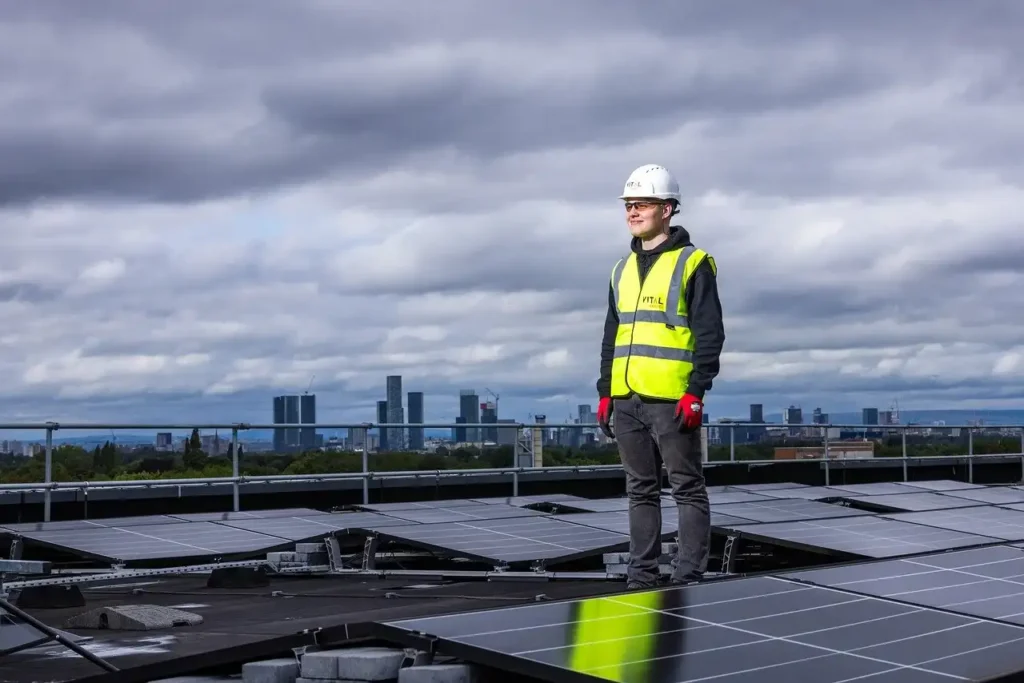Solar power stands as a beacon of sustainability and innovation, charting a course through history that reflects humanity’s enduring pursuit of cleaner energy. The technology to harness the sun’s boundless energy has evolved significantly, offering not just an alternative but a pivotal solution to the global energy crisis. This journey from rudimentary designs to sophisticated systems encapsulates a tale of scientific achievement and technological mastery.
The Dawn of Solar Innovation
The story of solar power began in the mid-19th century when the photovoltaic effect was first observed by French physicist Edmond Becquerel. However, it wasn’t until 1954 that Bell Labs in the United States pioneered the first practical silicon solar cell, also known as solar photovoltaic (PV), the progenitor of all modern solar panels. Initially, this technology was prohibitively expensive and was used predominantly in space applications for satellites, where other power sources were unviable.
Advancements in Solar Technologies
From Photovoltaics to Concentrated Solar Power
Over the decades, solar technology underwent extensive refinement. The 1970s marked a significant era, with the oil embargo prompting a surge in solar power interest, catalyzing research and governmental support. This period saw the development of more cost-effective and efficient solar cells, making the technology more accessible to the general public.
The introduction of polycrystalline silicon cells in the 1980s further democratized solar power, reducing costs and improving the efficiency of solar panels. Innovations such as concentrator photovoltaics (CPV) and thin-film solar cells expanded the applications and efficiency of solar installations.
Solar PV and Global Solar Deployment
The modern era has seen a dramatic increase in the deployment of solar technologies, with significant advancements in solar PV capacity and the development of large-scale solar farms that contribute significantly to national grids. These installations are increasingly coupled with innovative storage solutions to provide a steady, reliable flow of electricity, which is crucial for integrating solar energy into the global electricity system.
Integration and Smart Technology
Grid Integration and Renewable Power
The integration of solar power with smart technology is reshaping energy consumption patterns. Smart grids and IoT-enabled solar systems allow for real-time energy management and vastly improved efficiency. These systems not only optimize power flow but also forecast energy needs and adapt to changing conditions autonomously, thereby enhancing the electricity system with renewable power sources like solar and wind.
Challenges and the Future
Overcoming Barriers to Solar Energy Transition
Despite its vast potential, solar power technology faces challenges. The variability of solar energy, dependency on weather conditions, and the need for substantial land can be limiting factors. Additionally, while the cost of solar panels has decreased, economic disparities and initial investment barriers still prevent widespread adoption.
The Role of Solar Power in the Energy Transition
The future of solar power technology lies in overcoming these challenges through continued innovation and policy support. Research is heavily directed towards increasing the efficiency of solar panels, reducing the carbon footprint of their production, and improving energy storage technologies to better harness solar energy.
Last Words
The journey of solar power technology is one of both triumph and ongoing challenges. As we advance, the goal remains clear: to maximize this clean energy’s potential to meet the world’s increasing energy demands sustainably. The evolution of solar power not only highlights the ingenuity of past generations but also lights the path for future innovations in renewable energy. With each technological advancement, we move closer to a more sustainable and energy-independent world.
